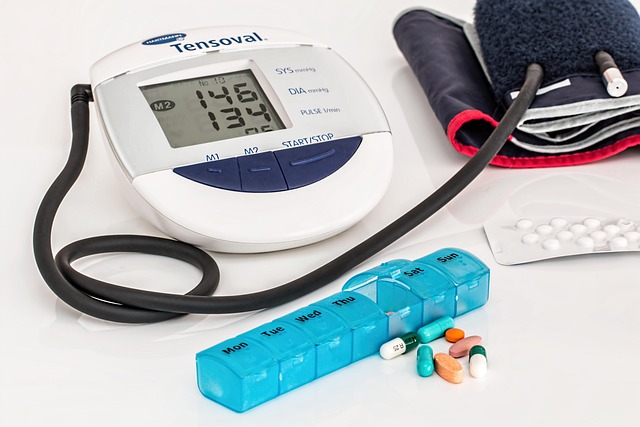Understanding Laser Dental Implants: A Comprehensive Guide
Dental implants have revolutionized the field of restorative dentistry, offering a permanent solution for missing teeth. Among the various techniques available, laser dental implants have gained popularity due to their innovative approach and potential benefits. This article will explore the world of laser dental implants, comparing them to traditional methods, discussing their advantages, and addressing common questions about the procedure and its costs.

What are laser dental implants and how do they work?
Laser dental implants utilize advanced laser technology to prepare the jawbone for implant placement. Unlike traditional methods that rely on drills and scalpels, laser implants employ focused light energy to precisely shape the bone and soft tissue. This technique allows for more accurate and less invasive implant placement, potentially reducing trauma to surrounding tissues and promoting faster healing.
The laser is used to create a small, precise hole in the jawbone where the implant will be placed. This process is known as laser osteotomy. Once the site is prepared, the titanium implant is inserted, and the healing process begins. The laser’s precision can lead to better implant stability and integration with the bone.
How do laser implants differ from traditional dental implants?
The primary difference between laser implants and traditional dental implants lies in the tools and techniques used during the procedure. Traditional implants typically involve the use of drills to create the implant site, while laser implants use light energy. This distinction leads to several key differences:
-
Precision: Laser technology offers greater precision in creating the implant site, potentially leading to better fit and stability.
-
Minimally invasive: Laser procedures often result in less tissue damage and bleeding compared to traditional methods.
-
Reduced pain and swelling: Many patients report less discomfort and swelling after laser implant procedures.
-
Faster healing: The minimally invasive nature of laser implants may promote quicker recovery times.
What are the advantages of choosing laser dental implants?
Laser dental implants offer several potential advantages over traditional methods:
-
Faster recovery time: The precision and minimally invasive nature of laser technology often lead to quicker healing periods.
-
Reduced risk of infection: Lasers have antimicrobial properties, which may lower the risk of post-operative infections.
-
Less pain and discomfort: Many patients report experiencing less pain during and after the procedure.
-
Improved accuracy: Laser technology allows for more precise implant placement, potentially enhancing long-term success rates.
-
Minimal bleeding: The laser’s ability to cauterize blood vessels as it cuts can result in less bleeding during the procedure.
Are there any drawbacks or limitations to laser dental implants?
While laser dental implants offer numerous benefits, it’s important to consider potential drawbacks:
-
Limited availability: Not all dental practices have the necessary equipment and training to perform laser implant procedures.
-
Higher initial costs: The advanced technology used in laser implants may result in higher upfront costs compared to traditional methods.
-
Learning curve: Dentists require specialized training to perform laser implant procedures effectively.
-
Not suitable for all cases: Some complex cases may still require traditional implant techniques.
-
Long-term data: While promising, laser implants have a shorter track record compared to traditional methods, and long-term studies are ongoing.
How much do laser dental implants cost compared to traditional implants?
The cost of laser dental implants can vary significantly depending on factors such as location, the dentist’s expertise, and the complexity of the case. Generally, laser implants tend to be more expensive than traditional implants due to the advanced technology involved.
Here’s a comparison of estimated costs for single tooth replacement:
| Implant Type | Average Cost Range | Additional Factors |
|---|---|---|
| Traditional Dental Implant | $3,000 - $4,500 | Bone grafting, sinus lifts may increase cost |
| Laser Dental Implant | $4,000 - $6,000 | May include faster healing time, less post-op care |
Prices, rates, or cost estimates mentioned in this article are based on the latest available information but may change over time. Independent research is advised before making financial decisions.
It’s important to note that while the initial cost of laser implants may be higher, potential benefits such as faster healing and reduced complications could offset some of these expenses in the long run.
Who is an ideal candidate for laser dental implants?
Ideal candidates for laser dental implants typically include:
-
Individuals with good overall health and adequate bone density
-
Those seeking a minimally invasive implant procedure
-
Patients who want to minimize recovery time and post-operative discomfort
-
People with anxiety about dental procedures, as laser implants often involve less pain
-
Individuals without severe gum disease or other oral health issues
However, the suitability for laser implants should be determined on a case-by-case basis. A thorough examination and consultation with a qualified dentist specializing in laser implantology is essential to determine if this approach is right for you.
In conclusion, laser dental implants represent an innovative advancement in restorative dentistry, offering potential benefits such as faster recovery times, reduced discomfort, and improved precision. While they may come with a higher initial cost and limited availability, the advantages of this technology make it an attractive option for many patients seeking dental implant solutions. As with any dental procedure, it’s crucial to consult with a qualified professional to determine the best approach for your individual needs and circumstances.
This article is for informational purposes only and should not be considered medical advice. Please consult a qualified healthcare professional for personalized guidance and treatment.




